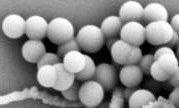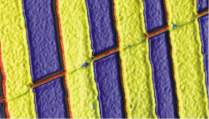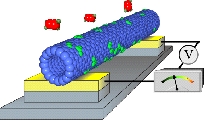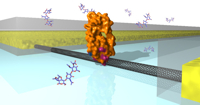 |
|
|
 |
Nanomaterials -
Synthesis & Characterization |
Researchers around the world have learned to make a range of nanomaterials.
Which nanomaterials are most interesting?
Which ones have unexpected behaviors? We often don't know until we start measuring!
|
 |
|
|
 |
Nanoscale
Electronics |
Nanoscale electronic circuits continue to surprise us with unexpected behaviors
and challenges. It's hard to control circuits when every molecule matters!
Sensitivity and variability are a challenge but also an opportunity.
What new types of devices are possible at the nanoscale?
Much of our work focuses on the amazing sensitivity of
nanodevices to their environment and consequences for chemical sensing.
|
 |
|
|
 |
Single Molecule
Devices |
We use the world's smallest wires to electrically connect to single molecules.
The devices are so sensitive that we can watch chemistry happening in real time, molecule-
by-molecule.
Single molecules as circuits?
Yes, in fact, single molecule circuits have been imagined for many years! Our particular
method makes stable circuits so that a single molecule can be monitored for long periods of time
as it interacts with its environment.
|
 |
|
|
 |
Single Molecule
Molecular Biology |
When a circuit is made with a single protein, we get an electrical signal that reveals
all of that protein's complex activity. Beyond being a new way of thinking about "electronics,"
these devices are a promising new method for revealing the complex interactions between
molecules like proteins and pharmaceuticals. As an example of how this works, see our
short YouTube video about lysozyme or listen to a
complete lecture by Prof. Collins.
|
 |
|
|
 |
For a more scientific description of current projects and Ph.D. research,
toggle to the
technical version of this page.
|



